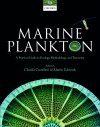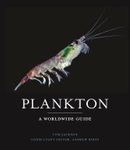About this book
A thorough understanding of planktonic organisms is the first step towards a real appreciation of the diversity, biology, and ecological importance of marine life. A detailed knowledge of their distribution and community composition is particularly important since these organisms are often very delicate and sensitive to change, and can be used as early indicators of environmental change. Natural and man-induced modification of the environment can affect both the distribution and composition of plankton, with important ecological and economic impacts.
Marine Plankton provides a practical guide to plankton biology with a large geographic coverage spanning the North Sea to the north-eastern Atlantic coast of the USA and Canada. Marine Plankton is divided into three sections: an overview of plankton ecology, an assessment of methodology in plankton research covering sampling, preservation, and counting of samples, and a taxonomic guide richly illustrated with detailed line drawings to aid identification. This is an essential reference text suitable for senior undergraduate and graduate students taking courses in marine ecology (particularly useful for fieldwork) as well as for professional marine biologists. It will also be of relevance and use to environmental scientists, conservation biologists, marine resource managers, environmental consultants, and other specialised practitioners.
Contents
General Introduction
Section I - Ecology 1
1: The marine environment, N. P. Holliday and S. Henson
2: Plankton biodiversity and biogeography, G. Beaugrand
3: Phytoplankton productivity, J. A. Raven
4: Zooplankton productivity, A. G. Hirst
5: Phytoplankton biogeochemical cycles, C. Robinson
6: Zooplankton biogeochemical cycles, D. K. Steinberg
7: Plankton and global change, M. Edwards
8: Plankton and Fisheries, K. Brander
Section II - Methodology 89
9: Sampling, preservation, and counting of samples i) Phytoplankton, A. C. Kraberg, K. Metfies, and R. Stern
10: Sampling, preservation, and counting of samples ii) Zooplankton, P. H. Wiebe, M. C. Benfield, and A. Bucklin
Section III - Taxonomy 137
Introduction to Taxonomy, R. Stern, M. Wootton, and C. Castellani
Part 1 - Phytoplankton 149
Phytoplankton: Diatoms, A. C. Kraberg and R. Stern
Phytoplankton: Dinoflagellates, A. C. Kraberg and R. Stern
Phytoplankton: Flagellates, R. Stern, H. Esson, and C. Balestreri
Part 2 - Zooplankton 181
Protozooplankton: Ciliates, A. Kraberg, J. Yang, R. Stern, and M. Strüder-Kypke
Protozooplankton: Radiolaria and Achantharia, R. Stern, C. Taylor, S. Sadri, J. Decelle, and F. Not
Protozooplankton: Foraminifera, R. Stern, C. Taylor, and S. Sadri
Cnidaria: Schyphozoa and non-colonial Hydrozoa, P. Licandro, A. Fischer, and D. Lindsay
Cnidaria: colonial Hydrozoa (Siphonophorae), P. Licandro, C. Carré, and D. Lindsay
Ctenophora, P. Licandro and D. Lindsay
Crustacea: Introduction, C. Castellani
Crustacea: Copepoda, M. Wootton and C. Castellani
Crustacea: Branchiopoda, C. Castellani
Crustacea: Cirripedia and Facetotecta, E. Southward
Crustacea: Ostracoda, M. V. Angel and A. W. John
Crustacea: Decapoda, C. Buckland, C. Castellani, J. A. Lindley, and A. dos Santos
Crustacea: Stomatopoda, C. Castellani, C. Buckland, J. A. Lindley, and D. Conway
Crustacea: Lophogastrida and Mysida, C. Castellani, M. Lehtiniemi, and K. Meland
Crustacea: Amphipoda, T. Jonas
Crustacea: Euphausiacea, J. A. Lindley
Anellida: holoplanktonic Polychaeta, C. Castellani and R. Camp
Mollusca: holoplanktonic molluscs, S. Lischka and H. Ossenbrügger
Chaetognatha, A. C. Pierrot-Bults
Echinodermata, D.V.P. Conway, C. Castellani, and E. C. Southward
Bryozoa, J. Fuchs and J. Bishop
Brachiopoda, J. Fuchs
Phoronida, J. Fuchs
Rotifera, D. V. P. Conway and C. Castellani
Chordata: Thaliacea, P. Licandro and M. Brunetta
Chordata: Appendicularia, G. Gorsky and C. Castellani
Chordata: Fish eggs and larvae, P. Munk and J. G. Nielsen
Customer Reviews
Biography
Claudia Castellani is a marine biologist, holding a BSc (Marine Biology), an MSc (Aquaculture and Fisheries) and a PhD (Zooplankton Ecology) degree from the University of Wales, Bangor. She has been working on main Natural Environment Research Council (NERC) thematic projects on plankton as a research assistant (PRIME, Plankton Reactivity in the Marine Environment) and as a post-doctoral researcher (Marine Productivity). She is currently working as data manager of the Atlantic Meridional Transect (AMT) and Plymouth Marine Laboratory (PML) within the NERC designated data centre for marine data management (BODC). Her main research interest is the taxonomy, ecology and physiology of zooplanktonic organisms.
Martin Edwards is an internationally recognised marine scientist whose primary research interest is in how climate and environmental change impacts on marine ecosystems. He and his colleagues were the first to demonstrate marine biodiversity distributional and phenological changes and whole ecosystem regime shifts in response to climate change. He has written over 100 publications including peer-reviewed papers, book chapters and policy related reports and assessments. As well as contributing to high level science he has considerable knowledge in transferring science into policy and was instrumental in bringing an applied ecological indicator approach to monitoring the marine environment which has subsequently been widely adopted.












































